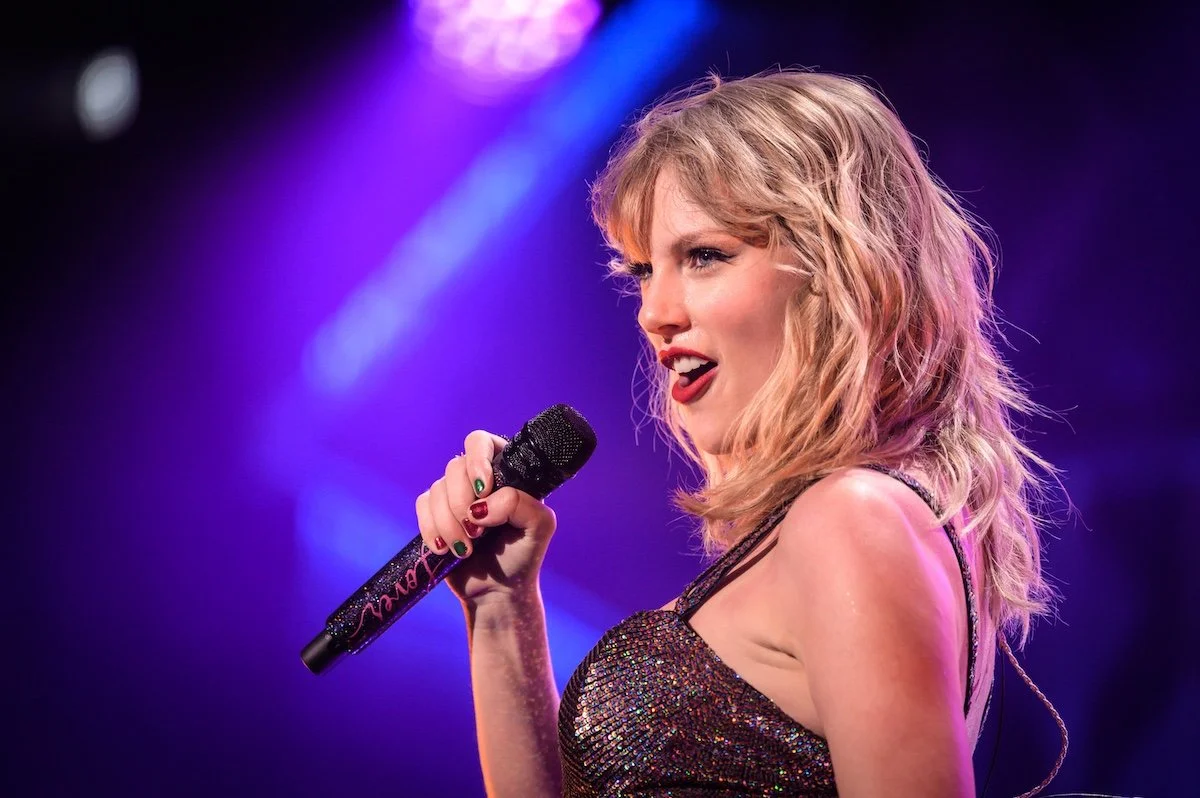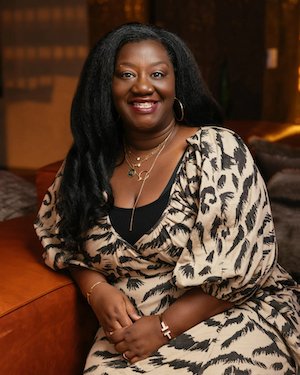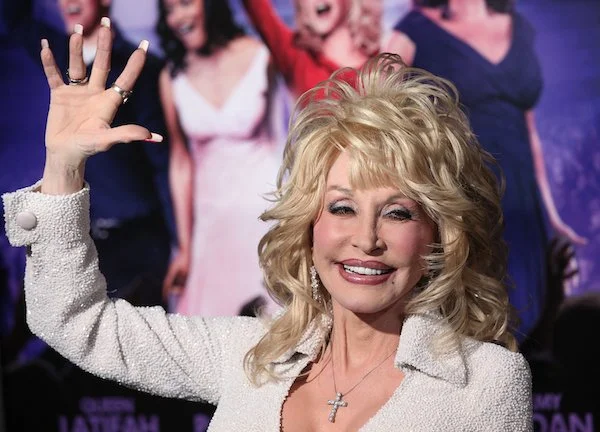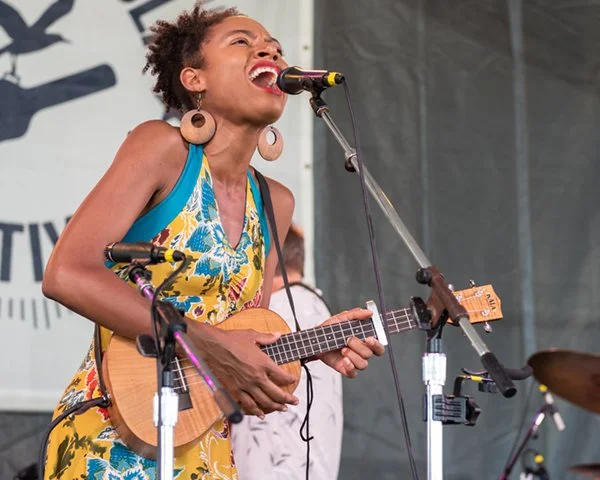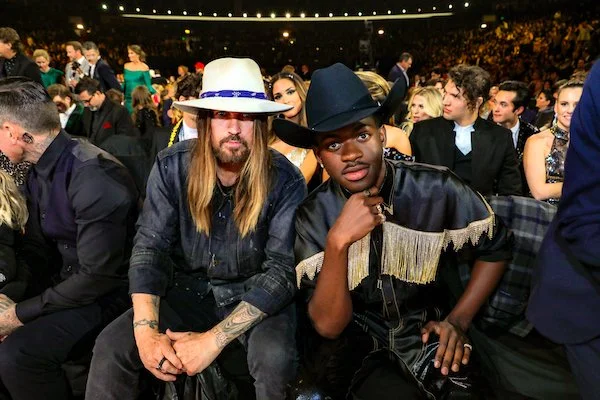Swift Country
Miss Americana could very well decide America’s fate. Is that a good thing?
Read
Ahead of some key state elections this year, Vote.org and other advocacy groups saw a massive spike in new voter registrations on a one-day nationwide drive. The main reason: Taylor Swift. The pop star has been urging fans to get political. But can she — and other celebrities — move the needle on core matters of social justice, and maybe even save democracy? As usual, we turn to the experts. By which we mean, of course, three teenage girls. Plus, phenom sociologist Tressie McMillan Cottom keeps it real.
Siva speaks with some of Swift’s biggest fans — his daughter and two of her friends from Charlottesville High School — to learn more about the artist’s recent forays into the national discourse, about her sway over a generation of young people, and about what all that could mean for next year’s national election and beyond. Meanwhile, Emily sits down with Cottom, a cultural critic and New York Times columnist, to go deeper on the relationship between mega-stardom and political culture. A skeptic of Swift’s politics, Cottom draws out a key tension between art and celebrity. And makes a confession.
Meet
Tressie McMillan Cottom is a sociologist and associate professor at the Center for Information, Technology and Public Life, a research group at the University of North Carolina–Chapel Hill. She is also a New York Times columnist and a 2020 MacArthur Foundation Fellow. Her first book was Lower Ed: The Troubling Rise of For-Profit Colleges in the New Economy (2018, New Press). In 2019, Cottom published a collection of essays called Thick, which was a finalist for the National Book Award. Follow her @tressiemcphd.
Left to right: 17-year-olds Maggie Heaphy, Jaya Vaidhyanathan and Elsa Miller. They are experts on Taylor Swift and students at Charlottesville High School, home of the Black Knights.
Lower Ed unpacked the pitfalls of paying high prices, and banking on debt, to study at for-profit educational institutions. The book draws on oral histories with more than 100 college students, administrators and activists.
In Thick: And Other Essays, Cottom offers sharp analyses on some of the most pressing issues facing women today — especially black women.
One way to think about Taylor Swift is as an inheritor of the Dolly Parton aura. Cottom has written previously about Parton’s status as a mega-celebrity, which she says pushed boundaries and yet inhibited the star’s ability to engage in any substantive political agenda.
Cottom followed up that initial Dolly essay with a reflection on country music and its racial politics. In 2021, she went in search of the “daughters of Dolly” and, following author Charles Hughes, proposes Lil Nas X as one inheritor of Parton’s genre-defying legacy.
Social boundaries and crossovers have been on Cottom’s mind for a long time. Read her 2014 interview about “hick-hop” with the Atlantic.
After posting on TikTok about blondness as a signifier of race, esteem and power, Cottom was swarmed by users — i.e., reported en masse — and then booted off the platform after her video garnered nearly 1 million views. She says the ban, which lasted a little over a week, is now a source of pride.
Last June, photographer Ivan McClellan organized the first black rodeo in Portland, Ore., to celebrate Juneteenth. Cottom visited the rodeo to see for herself how it complicates American stories of the land and its history of slavery.
Learn
Swift’s Eras Tour has been drawing huge numbers and made her more than $4 billion so far. The Washington Post reports on Argentine 20-somethings who camped out for more than six months in anticipation of Swift’s show in Buenos Aires.
Arizona Republic columnist EJ Montini declared recently that Swift may have the power to pick the next U.S. president — if she decides to wield it. The newspaper is owned by Gannett, which just hired a full-time T-Swift reporter. “Soft power” is how Politico describes Swift’s politics.
In 2018, she came out in support of the Democratic candidate for one of Tennessee’s seats in the U.S. Senate, breaking a long-standing silence on political issues. It drove voter registrations up then, too, especially among 18- to 29-year-olds.
“She voted against equal pay for women,” Swift wrote of Marsha Blackburn, the Republican incumbent. “She voted against the Reauthorization of the Violence Against Women Act, which attempts to protect women from domestic violence, stalking, and date rape. She believes businesses have a right to refuse service to gay couples. She also believes they should not have the right to marry. These are not MY Tennessee values.” Blackburn still won.
Swift’s home state became a flashpoint in the struggle for LGBT rights after Tennessee’s lawmakers banned public drag shows. A huge backlash followed the anti-drag act’s passage in March. In June, a federal judge ruled that it was unconstitutional.
Artists and activists sprang into action ahead of the law’s passage and organized the Love Rising benefit concert. Emily Nussbaum of The New Yorker writes about how that show was only the latest in a larger culture war that is remaking Nashville and country music.
In 2021, Blackburn, the Republican whom Swift opposed in the 2018 midterms, struck back at the billionaire artist, saying Swift would be the “first victim” under state socialism.
Swift got her start in country, not a world known for its progressive artists. In an interview with Variety, country musician Orville Peck discusses what it means to be openly gay in the genre. Peck tells Marc Malkin that queer people have always been a part of country music, if largely excluded from the big time.
Celebrities taking political stands is nothing new. Famously, Jane Fonda spoke out against the Vietnam War and became known as Hanoi Jane. Time magazine recently revisited Fonda’s 1972 trip to North Vietnam and the complicated story of her nickname.
And, hey, there was Fonda again in 1980 — starring alongside Dolly Parton and Lily Tomlin in a subversive hit about working women. Check out this reappraisal of the movie by columnists Manohla Dargis and A.O. Scott of the NYT’s “Weekend Watch.”
Heard on the show
So much killer music. This episode opens with a live version of “Speak Now” and includes tracks off of Evermore (2020), Folklore (2020), Lover (2019), and Reputation (2017). Listen closely and you’ll also notice instrumental covers of the iconic Swift tune “Shake It Off,” performed by Acoustic Heartstrings, and “Epiphany,” played by Minzz Piano. We rolled the credits over a hip-hop parody of “Blank Space” from this 2014 YouTube classic featuring then–middle-schoolers Matty B Raps and Ivey Meeks.
There’s a news clip from CBS, a montage of senators quoting Swift, a speech by Swift during the MTV Video Music Awards this year, and some audio pinched from the 2020 Netflix documentary Miss Americana.
In Emily’s interview with Cottom, we couldn’t help adding more music. Dolly Parton croons “9 to 5,” featured in the 1980 blockbuster film of the same name. And Lil Nas X, a.k.a. Montero Lamar Hill, joins Billy Ray Cyrus on “Old Town Road,” the 2019 surprise smash that Billboard yanked, controversially, from its Hot Country Songs chart.
Transcript
Coming soon!


